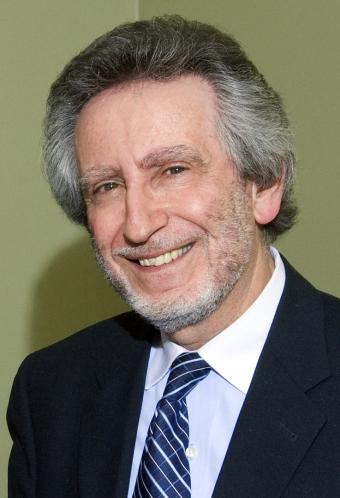PROVIDENCE, R.I. [Brown University] —In a “Perspective” published today in the New England Journal of Medicine, Eli Adashi, a professor of obstetrics and gynecology and former dean of medicine and biological sciences at Brown, co-wrote that researchers have won a battle, but not the war, with a recent U.S. Court of Appeals ruling in favor of human embryonic stem cell research. In the interview below with David Orenstein, Adashi says that the uncertainty is hindering the field, which may need a concrete success to move the deeply personal moral debate more in its favor.
What kinds of stem cell research are affected?
There are three kinds of stem cell categories. There are human embryonic stem cells, which are derived from embryos. There are the so-called adult stem cells which reside in each and every one of us. And then there are the so-called induced pluripotent adult stem cells. These are cells, say from the skin, which are cultivated and induced to simulate, for lack of a better term, a stem cell. They are reprogrammed to regress to an embryonic like state. Of these three, the latter two seem to be immune from the current debate. What is suffering is research involving human embryonic stem cells, the fate of which is up in the air.
This is not an issue in much of Europe or Korea, which attempted at some point to take the lead in this area. This is very much at this point an American challenge.
How can researchers keep working under such uncertain funding conditions?
I’m going to paraphrase a comment made to me by Arthur Caplan, who is a leading bioethicist at the University of Pennyslvania: I’m most concerned, he said, about the impact of this on young investigators who wish to make this their field of choice.
The question about the impact is a definite negative. It’s a little difficult to marshal the motivation to enter a field where you know that at least public funding is, at this point uncertain.
There’s always a point made about private funding. Why not rely on that? But the reality in the United States, no matter what we say or do, when it comes to the basic life sciences, the number one funder is the National Institutes of Health.
Must this go through the courts, or could Congress or President Obama resolve the issue?
Theoretically yes. The legislative branch has the power to resolve the issue, in one of two ways. One would be to undo the Dickey-Wicker Amendment, for instance by avoiding attaching the amendment to the FY 2012 budget resolution. Altogether de novo legislation to override Dickey-Wicker is likewise a possibility. But this is unlikely in the face of the current makeup of Congress, which is relatively conservative. Another resolution would be something that could enhance and or strengthen the current amendment with a new statute that is anything but ambiguous. The likelihood of this is real but there is no evidence of this to date.
The only way the President would be involved is if one of these hypothetical legislative initiatives could come to his desk for signature or veto. He did issue an initial executive order when he took office facilitated human embryonic stem cell research.
In the journal, you and your co-author call for researchers to “pick up the pace.” What do you mean?
There’s substantial human suffering out there that could in principle be alleviated or eliminated if human embryonic stem cell research, or related research, proves successful. But we do have to acknowledge that as we speak today there is no specific breakthrough therapy that can at this point be attributed to stem cells. Bone marrow transplants rely on adult stem cells, but certainly there are no contributions beyond that. Our call for expanded or accelerated action was made in the hope of coming up with something that is truly meaningful from a therapeutic point of view.
In terms of public acceptance, and Congress’s acceptance, of technology such as human embryonic stem cells would be markedly influenced by a major breakthrough of a therapeutic nature. We have learned from in vitro fertilization, which was also objected to on a variety of moral and religious grounds, that the opposition melted when a meaningful breakthrough was accomplished. What was decried as an anti-life initiative, turned out to be a pro-life initiative. I think the same could be true here.
In your view, why is human embryonic stem cell research ethical?
First of all there are the existing cell lines. They are at the point where we are long past the step at which they were derived, during which an embryo has been destroyed. Note that President Bush decided to allow existing cell lines to be used. When it comes to existing stem cell lines, I think there exists reasonable consensus on both sides of the debate.
The issue comes up when we are talking about deriving new stem cell lines, if that becomes necessary, at which point more embryos will be destroyed. To some the saving of a life through such technology, which may involve the destruction of an embryo is morally acceptable. To others it is not. It comes down to how one views an embryo on moral and religious grounds. It’s not simply resolvable through discourse. It’s highly personal. There’s no likelihood we will achieve absolute consensus on this matter.
Many bioethicists have argued there are now hundreds if not thousands of embryos frozen in IVF laboratories. Some of them, at some point, will be discarded. People die. Embryo adoptions are rare. It’s a complicated issue. Could they, or should they not be put to good use, to save lives?
The debate about the nature of life is one of the most socially divisive issues in the United States today and will remain so for long time.

